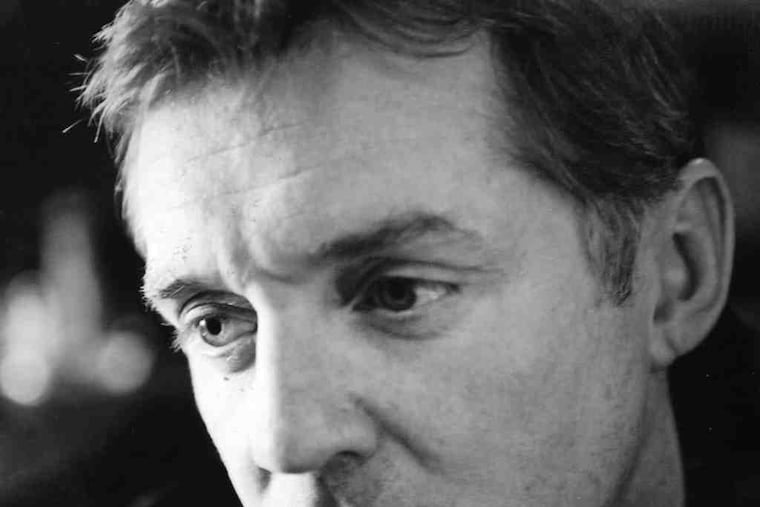A clean P.I. in a corrupt city
My introduction to Chicago crime and corruption came from watching The Untouchables on TV as a kid during the early 1960s. I later read Boss, Mike Royko's classic 1971 book on Mayor Richard J. Daley and Chicago politics. In 1970, while at Navy boot camp at the Great Lakes Naval Station in northern Illinois, I took leave to visit Chicago.

By Michael Harvey
Alfred A. Knopf. 298 pp. $24.95
nolead ends nolead begins
Reviewed by Paul Davis
My introduction to Chicago crime and corruption came from watching
The Untouchables
on TV as a kid during the early 1960s. I later read
Boss
, Mike Royko's classic 1971 book on Mayor Richard J. Daley and Chicago politics. In 1970, while at Navy boot camp at the Great Lakes Naval Station in northern Illinois, I took leave to visit Chicago.
Chicago's rich crime history has always interested me. It has Al Capone, the St. Valentine's Day Massacre, and the FBI's slaying of John Dillinger. So, naturally I've taken an interest in Michael Harvey's Chicago-based crime fiction series, which began with The Chicago Way (2007).
We All Fall Down is the third in the series that features cop-turned-private-eye Michael Kelly. Like most fictional private eyes, Kelly is an incorruptible man surrounded by the totally corrupt.
In We All Fall Down, Harvey introduces us to Chicago's crooked cops, crooked feds, and crooked politicians. We meet crooks in high places and low, from Capone's successor as head of the local mob, known in Chicago as the Outfit, to a 13-year-old street kid and aspiring drug lord.
The novel opens with a Homeland Security officer blackmailing Kelly into taking a contract security job. (In this economy, who needs to be blackmailed into taking a job?) The Homeland Security man killed an FBI agent in the previous novel in this series, but he holds evidence that would frame Kelly as the killer.
This time out, someone has dropped a light bulb in the subway that may have released a chemical agent. Kelly's job is to escort the scientists investigating the incident for possible dispersal of weaponized anthrax. Kelly goes underground with the scientists and stands guard as they take air and soil samples.
The future, one of the scientists tells Kelly after they surface, is "black biology."
Black biology, explains Dr. Ellen Brazile, "refers to, among other things, rogue labs that use recombinant DNA technology to enhance existing pathogens or create new ones. It might mean modifying an existing strain of anthrax or grafting a filovirus such as ebola onto a common flu virus. It might be entirely synthetic."
With three or four scientists and about $15 million, Brazile tells Kelly, one can create a "Superbug." No known cure. No vaccine. No stopping it.
Meanwhile, Kelly is contacted by a friend, Rita Alvarez, a newspaper reporter, who asks him to check out the mayor's chief of staff. She suspects the politician is steering public contracts for medical supplies to certain companies for a cut.
Kelly is surprised at her request, since she's an investigative journalist, after all - and her boyfriend is a police detective. It's complicated, Alvarez explains. So, Kelly begins to investigate for Alvarez and he stumbles onto a sideshow to the novel's main event.
And then people begin to die from a mysterious, spreading pathogen.
The federal and city governments quarantine a West Side neighborhood.
"A mixture of Homeland Security, FBI and military filtered into the streets," Harvey writes. "Clad in NBC [nuclear, biological, chemical] suits and carrying automatic weapons, they shut down all major intersections and closed whatever was still open - mostly bars and restaurants, gas stations, convenience and liquor stores. They herded people back to their homes, arresting anyone who gave them trouble and arranging 'temporary shelter' for those who were stranded in a restricted area."
Reactions among Windy City citizens vary: "Some people screamed at the hooded figures with guns. Others fainted. Three went into cardiac arrest. On the West Side, bangers and wannabes alike broke out windows and took what they wanted while they could. In Oak Park, people grabbed for their cell phones - a primal urge, apparently, both to share their outrage and record it. Overall, however, regular folks mostly went along. That surprised Washington, but the reality was when a cop in an NBC suit pointed a gun and told you to stay inside, you did exactly that. Until someone told you different."
This crime thriller is well-written and fast-paced, and I thought the bioterrorism attack on the city made for an interesting plot, but Harvey overcomplicates things by throwing in municipal corruption, the mob, drug gangbangers, rogue feds, crooked cops, crooked businessmen, and bent politicians from the mayor on down. And none of them are shy about committing murder. I thought it was a bit much, even for Chicago.
Still, We All Fall Down is an entertaining and thought-provoking crime thriller.